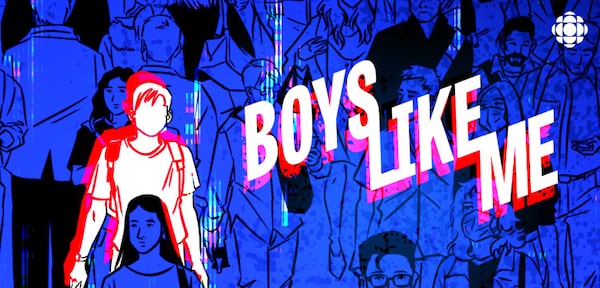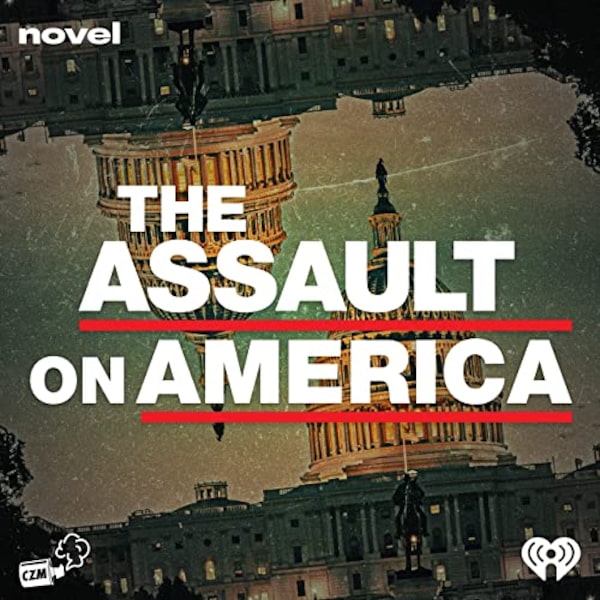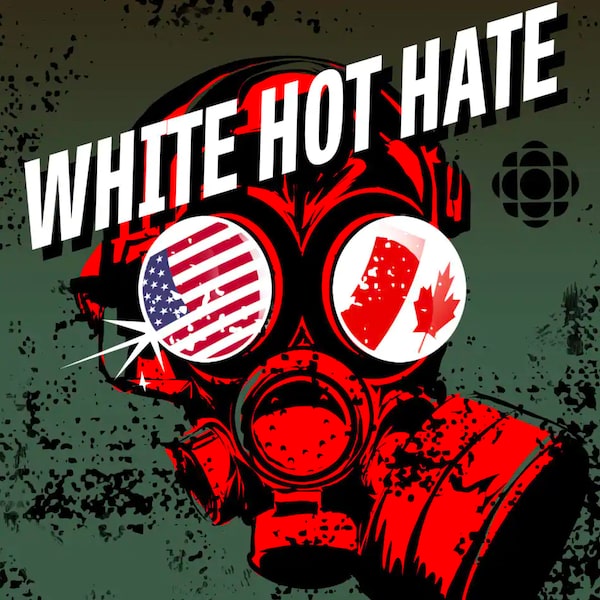Today, culture wars often feel omnipresent. It’s hard to log on to any online space without seeing slivers of them: an aunt spouts questionable vaccine opinions on Facebook; an angry feud about sexual health breaks out on Twitter; some guy with strongly held opinions shares his thoughts during an hour-long Youtube video.
Conflicts or power struggles between social groups have been around for a long time. They have their roots in religion and have been about nearly everything since, from social justice to education to the politics of gaming.
Through sharp reporting and stellar storytelling, these five podcasts help us make sense of some of today’s most prevalent culture wars. Each investigates how they started, how people get involved, and how opposing ideals can lead to radical or violent ones.

Handout
Boys Like Me
(CBC, Hosted by Ellen Chloe Bateman)
In 2018, documentarian Ellen Chloe Bateman was working on a project with Evan Mead, an autism advocate and filmmaker based in Toronto. Then, something happened that derailed their work: A man intentionally struck down pedestrians on Toronto’s Yonge Street with a van, killing 11 people and injuring 15. The driver, Alek Minassian, was one of Mead’s former friends and classmates.
The news sent Mead spiralling, and raised a big question: How could two men who grew up alongside each other end up in such different places?
Boys Like Me sets out to find answers. Alongside Mead, host Bateman examines why some young men get radicalized online and commit real-world violence as a result. The podcast dives deep into the misogynistic incel movement and how virtual message boards and chat rooms led to one of the worst mass murders in recent history.
Handout
Rabbit Hole
(New York Times, hosted by Kevin Roose)
Most of us have been there: You watch a video online and see a bunch of related ones recommended on the sidebar. So you click another. And another. And suddenly, you’re falling down a rabbit hole of content, unsure how you ended up at whatever it is you’ve landed on. These internet binges are usually harmless: Maybe you start with a cat video and end with something equally innocuous. However, that’s not always the case, and a few wrong clicks can alter a life completely.
Hosted by Kevin Roose, Rabbit Hole explores how the internet – and its algorithms – can shape our political beliefs, our values and how we engage with the real world. The podcast retraces the steps of people who’ve ended up in QAnon or other alt-right corners of the Web, and probes how the time we spend online changes us.
Handout
The Experiment
(The Atlantic & WNYC Studios, hosted by Julia Longoria)
This podcast is tonally quite different from the others on this list. Rather than chasing down one thread or one story, The Experiment tackles a different topic each week, looking into the many contradictions and controversies that make up the United States.
Hosted by Julia Longoria, it delves into everything from modern culture wars to long-standing ones, investigating their roots, the surrounding debates and how individuals navigate them. Through reporting, historical analysis and great interviews, the podcast covers issues such as abortion, vaccine mandates and the discourse around satire, always with a curious and engaging voice.

Handout
The Assault on America
(Cool Zone Media, iHeartRadio & Novel, hosted by Robert Evans)
In the first episode of this investigative podcast, journalist Robert Evans explains the “big lie,” a political tactic popularized in the Second World War. The idea is that people will believe a bigger lie more easily than a small one – and the more you repeat it, the more credible it becomes.
From there, The Assault on America focuses on the most recent (and dangerous) big lie to spread across the United States: that the 2020 presidential election was rigged against Donald Trump. Evans traces how a seemingly outlandish theory led to the first mass breach of the U.S Capitol since 1814 – with violent extremists storming in on Jan. 6. – and asks what the future holds for far-right groups with an alternative grasp on reality.
White Hot Hate

Handout
(CBC, hosted by Michelle Shephard)
In 2019, recruitment flyers for an extremist, white nationalist group called the Base started popping up around Manitoba. Wanting to learn more, reporter Ryan Thorpe from The Winnipeg Free Press joined the Base undercover – and found himself in an organized, militarized group intent on starting a race war.
Thorpe’s reporting revealed the identity of one of the Base’s members, a Canadian Armed Forces reservist, and sparked a wider conversation about the rise of violent neo-Nazis in Canada. White Hot Hate tells Thorpe’s story, and looks outward at others like it. Host Michelle Shephard, a veteran national security journalist, investigates how white supremacist ideologies are spreading across the country and beyond.
Sign up for The Globe’s arts and lifestyle newsletters for more news, columns and advice in your inbox.